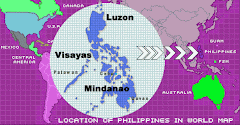But the way the socialist countries in this planet are acting, they are making socialism a tasteless fare. China is ramming its ships on the shores of what is owned by the Philippines while Russia is strengthening its forces on the boundary between her and Ukraine, making the Ukrainians afraid of their future.
Is war really the only way that a society could be made humane and caring, if being socialist a country could attain such?
The times when Russia became socialist was in 1917, while China in the 40's. Russia underwent a bloody revolution, up until Stalin who killed his enemies just so socialism would be strengthened in that country. China, too underwent a bloody revolution with Mao Tse Tung completing the twin party declarations of Marx that change is inevitable and that the workers can only free themselves through revolution, while Lenin posited the idea that the change should be led by a workers' party, and Mao Tse Tung forwarded the two with the policy that armed struggle is the key to completing that revolution.
Yet despite the very many studies that have been conducted on using revolutionary power, the ideas of Marx, Lenin and MTT have been made unnecessary as their moves have only brought untold sufferings to the people. Just look at the CPP in the Philippines which continues to hold on to armed struggle. So many young people have died, their intellect so previous that have they been used for peaceful means could have brought about a more progressive Phiippines.
In fact, the People Power revolution that brought about the death knell to martial law and Marcos rule was carried out not by the CPP which boycotted the presidential elections but by the yellow movement of Cory Aquino. This People Power has been copied in many countries already -- like Germany which has seen the unity of the East and West, the scrapping of the USSR and in its stead, a series of independent nations that are now recognized by the United Nations.
In other words, the use of arms to attain one's political objectives is no longer a viable move as it can only bring about negative consequences that in the long run do not advance the planet as a humanitarian place to reside in.
Yes, that is it, we want a humanitarian Earth not in the way it is conceived now -- full of wars and bloody struggles for power.
So the United Nations is now tasked more than ever to oversee how diplomatic instead of using war could be used to settle country differences, and how to make the socialist countries see its role in this planet, not as a militarily powerful force for domination but rather for settling differences peacefully.
Adherents to socio-political ideologies in this new millenium would increase more if those who are coming from the socialist camps would open their doors to greater and more sincere diplomatic moves rather than trying to show their muscle all the time.
it takes 9 months to bring about a life into this world. It takes 20 years to rear that life into adulthood complete with education -- given the right support from the state. And soldiers who face wars all the time are not apt to develop into good citizens should they finish their turn of duty, as can be gleaned from reports that ex-soldiers tend to develop mental illnesses and have a hard time recovering from their traumas. Moreover, sending soldiers to wars that can only result in death or survival is no longer a humane way to live.
We need to find more humane styles of living, not always being on edge if we would live until tomorrow, but rather knowing that tomorrow we could still give a warm embrace to our loved ones; we could still smell flowers and appreciate flowers; and meditate peacefully on how humans can live to realize our potentials to the fullest.
Socialists need not feel wary that their ideologies are not being appreciated at all but that their style of educating us on the advantages of socialism may be inadequate, and their militaristic postures do not help them at all. Flowers, flowers and doves please.





